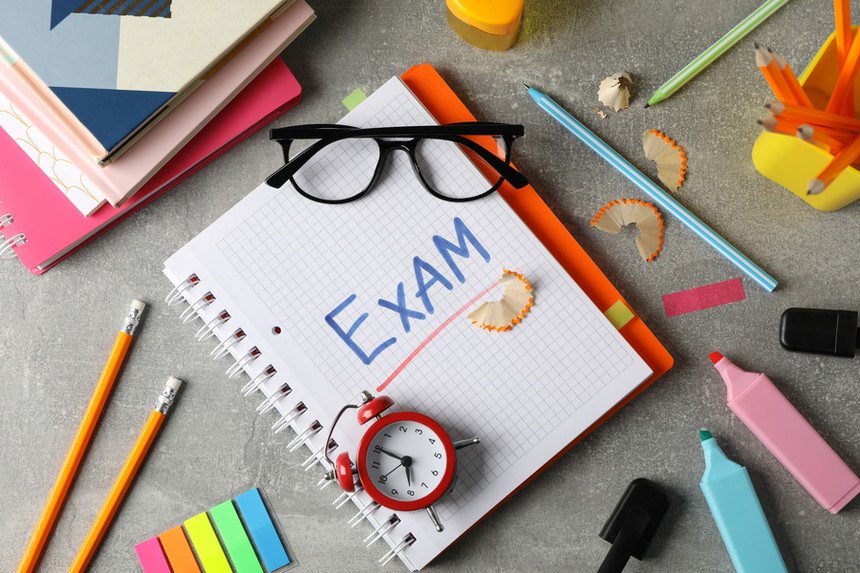How to overcome test-taking anxiety and ace my exams?
A little nervousness before a test is typical and can help sharpen your mind and focus your attention. But with test anxiety, feelings of worry and self-doubt can interfere with how well you do on tests and make you miserable. Test anxiety can affect anyone, whether you're a grade school or high school student, a college student, or an employee who has to take tests to move ahead in a career or get certified.
Getting anxious before a test or exam is to be expected and perfectly normal. It's how you deal with that anxiety that matters. There are many ways to calm your nerves before test-taking. Sometimes these emotions can become overwhelming and negatively impact your ability to perform well.
Follow these tips to reduce your test anxiety and go into tests feeling calmer and more confident.
You can start implementing these easy-to-follow strategies today.
Take time to learn the material well.
Practice makes perfect. Proper preparation is one of the best ways to immediately lower anxiety levels. Give yourself ample time to study and develop a study plan that works for you. Remember, every step you take toward your goal is a step closer to success. Struggling with study motivation? Check out blog about on how to motivate yourself to study!
Avoid excess caffeine.
While moderate caffeine intake can help increase focus and improve energy, excess caffeine can heighten test anxiety symptoms. If you don’t regularly consume caffeine, then it’s best to continue your current habits. If you enjoy caffeine, be sure to monitor how much you consume, and consider cutting back if you’re experiencing test anxiety.
Practice relaxation.
When you experience anxiety, your body goes into a state of "fight or flight," which can interfere with your ability to focus, think clearly, and perform well on the test. Relaxation techniques can help to counteract this response and promote a sense of calm and relaxation. Some methods to try might include:
Deep breathing: To practice deep breathing, sit in a comfortable position and inhale deeply through your nose, and exhale slowly through your mouth.
Progressive muscle relaxation: This technique involves tensing and then relaxing each muscle group in your body, starting with your toes and moving up to your head. This can help to release physical tension and promote relaxation.
Mindfulness meditation: Start by focusing on your breath as it moves in and out of your body. When your mind is drawn to a physical sensation or thought, note it and return your attention to the breath.
Seek support.
If your grades are suffering due to test anxiety, and it’s negatively impacting other areas of your personal life, then speaking to a professional, parent or someone could have tremendous benefits. Anxiety can be confusing to experience. We can also help you understand what’s happening and talk you through how to become more comfortable taking tests and improving your overall mental health. Also, check our blog about Ways To Help Your Children Through The Exam Period.
Anxiety before a test tells you something important: The outcome of the test matters to you. If you aren’t typically prone to experiencing test anxiety, then something specific about this test may be causing excessive concern. Putting extra time into your preparation can help ease your anxiety, as can speak with your teacher or someone who has taken the class. Giving yourself plenty of time to study and getting a good night’s sleep before the test can help ease anxiety and prepare you to give your exam everything you’ve got. Good luck to your exams!
Check out our blog post about Study Tips For Exam Success!
Still struggling with course content and exam technique? You might benefit from hiring a tutor. Follow the link below to find out more:


